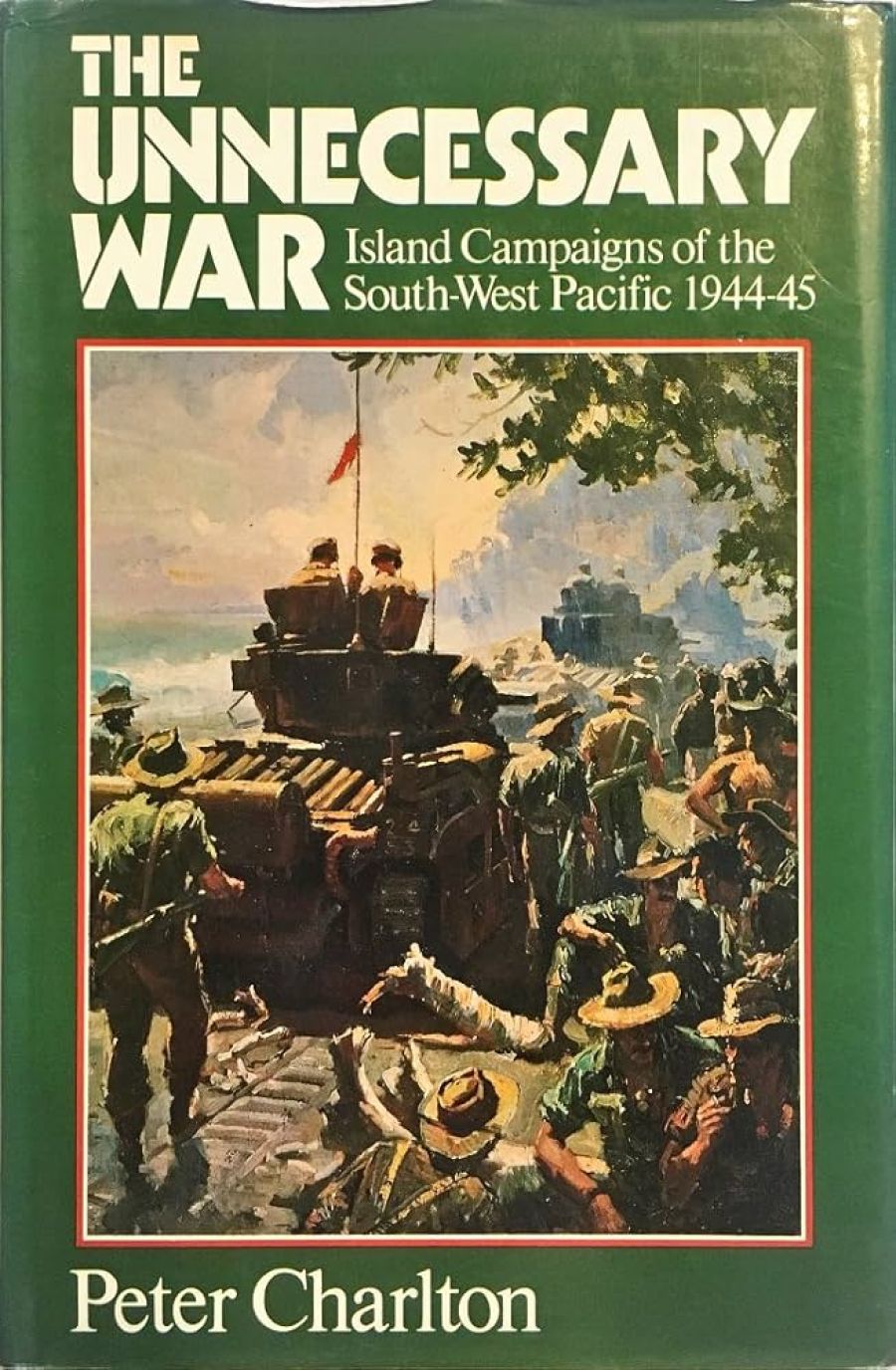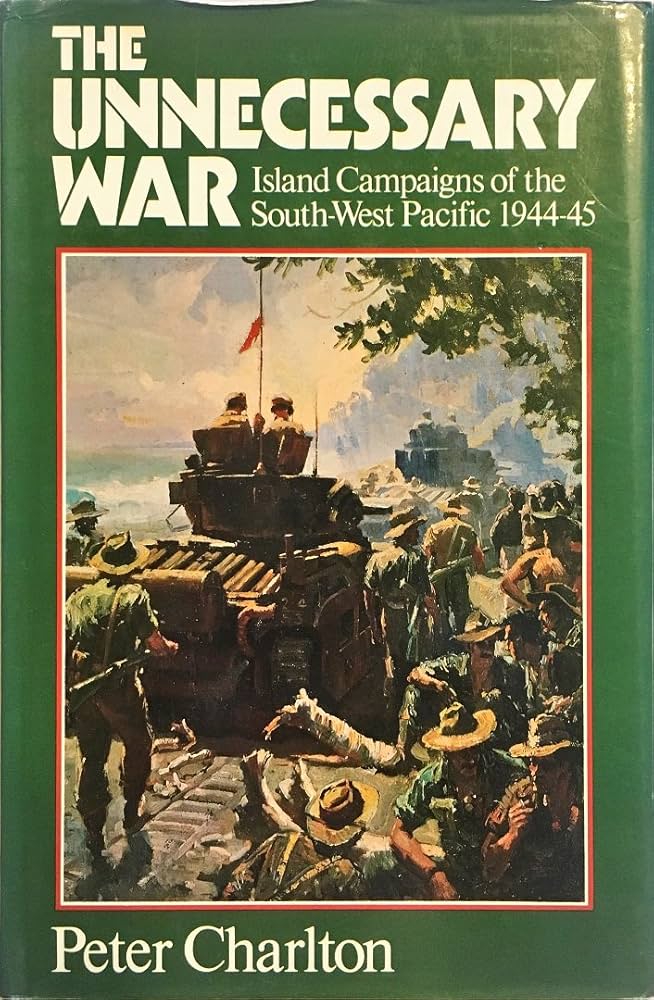
- Free Article: No
- Contents Category: Australian History
- Review Article: Yes
- Article Title: Arms and politics
- Online Only: No
- Custom Highlight Text:
In this short book Peter Charlton suggests that the final campaigns fought by Australian forces in the south-west Pacific were unnecessary, foisted upon our troops by an ambitious high command, notably General Sir Thomas Blarney. He argues that since Curtin had surrendered any Australian control over the use of its troops to MacArthur, it was left to Australia’s own generals to protect the country’s interests in circumstances where its political leaders had conspicuously failed. In so doing, these generals squandered Australian lives in a series of operations of dubious military value, using troops that were under-equipped and maintained, and ultimately seeking to win over public opinion by recommending a large number of decorations for valour in the field. The troops themselves were under no illusions about the value of their activities, and politicians had long ago abrogated their responsibility for setting out the political aims and limits of Australia’s military involvement. All in all, this was truly a “generals’ war”.
- Book 1 Title: The Unnecessary War
- Book 1 Subtitle: Island Campaigns of the South-West Pacific 1944-45
- Book 1 Biblio: Macmillan, 188pp., illus., biblio., index, $17.95 0 333 35628 4
- Book 1 Cover Small (400 x 600):

- Book 1 Cover (800 x 1200):

This is certainly an arresting argument and is forcefully argued. Charlton has relied mainly on secondary sources but has culled them admirably to provide a compelling description of the conditions under which these campaigns were fought The smell of the jungle, the appalling privations, the gradual decline into a cynical acceptance of the futility of it all: these are well conveyed by the author. Although on the descriptive side he has nothing new to say he has caught something of the flavour of this period of Australia’s war extremely well.
The author is less successful, however in arguing that the senior military command acted improperly in carrying out these operations. The endings of wars are that makes it good whether it belongs rarely tidy affairs, and the second world war was no exception. The Pacific theatre had no clearly defined territorial frontiers which, once crossed, would put the military issue beyond doubt. It is worth remembering that there were very real fears that even the collapse of the central power in Japan would not necessarily result in the surrender of Japanese forces in the field. It was not enough to hope that the hundreds of thousands of troops scattered throughout Asia and the Pacific would meekly obey an order from Tokyo to lay down their arms. Secondly, there was a widespread feeling among the allied powers that after the humiliating debacles of Pearl Harbor and Singapore, it was essential for the allies to return to the Japanese occupied territories in conspicuous force in order to restore white prestige. That was a forlorn hope, but it cannot be dismissed simply as a misuse of military power for improper political ends.
Charlton partly bases his criticisms of these campaigns on quotations from the nineteenth century Prussian military writer, Clausewitz, who, it seems, is condemned to be quoted out of context and used to support extreme positions. While it is true that Clausewitz argued against the proposition that there was a point in war at which generals should take over from politicians, he was not suggesting that generals should be unaware of political considerations. Rather he was arguing for the primacy of political over purely military factors, neither of which was the sole preserve of politicians or of generals. The relationship between policy and operations is both a direct and a complex one, and if we accept Charlton’s own description of the lack of political direction provided by Australia’s political leaders towards the end of the war, it was not necessarily a bad thing for our military leaders to attempt to fill the vacuum. The evidence to the contrary that is produced in this book is not sufficient to sustain the charge that is central to the author’s argument.


Comments powered by CComment